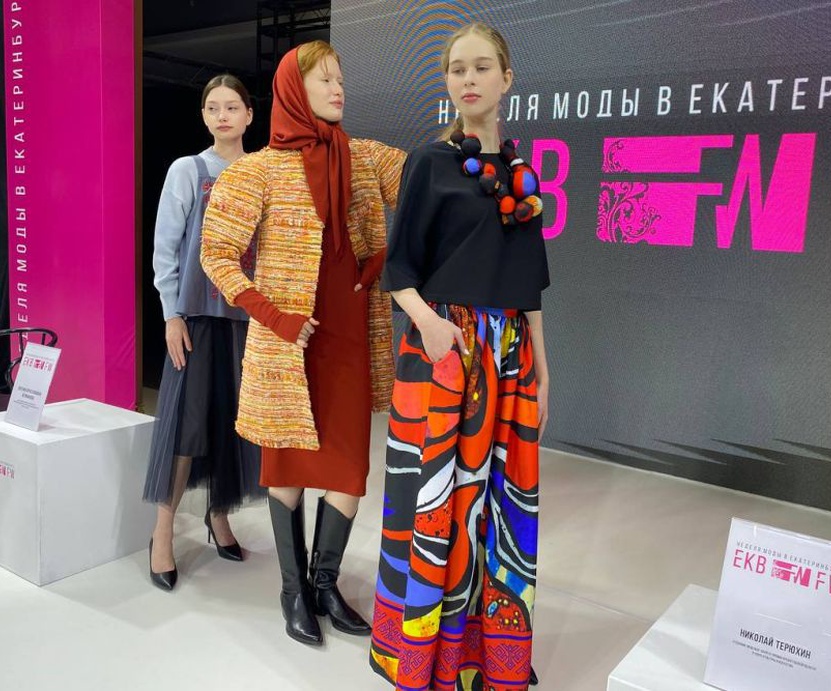
The XXI season of Fashion Week in Yekaterinburg has started today at the Ural Center for Design Development and will run until November 24. The collections presented during the shows revolve around the theme of "New Meanings". According to the project organizers, this refers to the local identity of the regions and the individual search for cultural codes of different ethnic groups in the country. The presence of renowned and emerging designers facilitates the exchange of experiences.
The promotion of Russian brands can be seen as a way to support students pursuing education in the fashion industry. On a separate day of Fashion Week, a debut show of the best student works from fashion-focused universities, including guests from Moscow, St. Petersburg, Kazan, and Ivanovo, will be held.
A total of 70 designers from the country have been invited to showcase their collections, with special guest Nikolay Teriukhin, who is the author of over 130 collections, laureate of the Archangelsk Region award in the field of culture and art, and head of the department for costume sewing, restoration, and preservation at the State Academic Northern Russian Folk Choir. Teriukhin will present a new collection that reinterprets the cultural heritage of Pomor people, incorporating ethnic motifs into the designs.
"It is pleasing to see that the organizers of Fashion Week are paying attention to Russian style and elements of traditional costumes in contemporary clothing. We have brought fragments of the 'In Love with the North' collection, created with embroidery elements and antique fabrics that we collect during expeditions and then give a second life," briefly described Nikolay Teriukhin.
Kseniya Ilauski, a member of the Union of Designers of Russia, art historian, and representative of Yugra, noted a trend among modern designers to reflect cultural heritage through fashion and design. Interpreting and integrating canonical patterns and ornaments into contemporary collections is quite challenging, but there is a demand for originality today. This helps young authors grow into independent segments of small businesses and achieve self-sufficiency. In their collections, they increasingly strive to answer the questions: "Who are we, what do we want to wear, and how do we want to present ourselves to the world?"
"The trend for folk art has not disappeared. Young people simply choose the style and form, but they still seek meaning. In one of the collections, we will introduce you to complex technical experiments that allow you to see oil spills on clothes in a different color, rather than the typical black oil stains we are accustomed to seeing," said Ilauski. "The results of macro photography were provided to us by the Oil and Gas Geology Museum in Khanty-Mansiysk. And we were able to see a drop of oil from the legendary Samotlor field in a completely different color spectrum."
Another collection from the Khanty-Mansi Autonomous Okrug (KMAO) draws inspiration from the archeology of Western Siberia and the Urals. Designers specifically studied the Kulaic culture, known for bronze casting and hunting, to create this collection.
Two days of Fashion Week have been dedicated to showcasing children's collections. On the final day, the runway will be handed over to models from local designers, including representatives from Tyumen and Yekaterinburg.